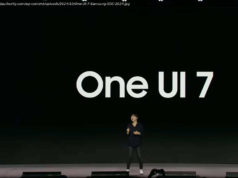Forever Labs, backed by Silicon Valley-based accelerator Y Combinator, stores clients’ stem cells with the hope of eventually using them to treat signs of aging.
Startup of the week:
Who they are: Forever Labs
What they do: Harvest and preserve your stem cells
Why it’s cool: Scientists have been chasing the “fountain of youth” for centuries. Now a startup backed by Silicon Valley-based accelerator Y Combinator says it may be within reach of that utopian goal. Forever Labs, based in Michigan, is researching therapies that would use your own stem cells to treat age-related diseases like Alzheimer’s, strokes and cardio vascular disease. But the ultimate goal is to take it one step further.
“What we’re most excited about is the ability to use these cells potentially to treat aging itself,” said founder and CEO Steven Clausnitzer.
In the meantime, Forever Labs is getting its potential patients ready. Because young stem cells are better candidates for these therapies than older ones, Forever Labs is harvesting clients’ stem cells, freezing them and storing them for use once the clients age or get sick.
The stem cells are taken from bone marrow — a process that Clausnitzer says is a simple, 15-minute, outpatient procedure. Then the cells are stored at low temperatures in liquid nitrogen in a facility in Massachusetts.
Stem cells are unique because they can morph into a range of different cell types, depending on what the body needs. Once injected into a patient, they can travel to the damaged or sick organ or system and start repairing the tissue. If injected into an aging but otherwise healthy patient, Clausnitzer suspects they may be able to rejuvenate the person’s blood, bones and immune system, which could provide a range of benefits. He uses his grandfather as an example — the elderly man’s health deteriorated after he fell and broke his tail bone, but if he had younger bones, that fall might not have caused so much damage.
The service isn’t cheap. Forever Labs charges $2,500 to extract the stem cells, and another $250 per year to store them. Alternatively, clients can pay $7,000 up front for the extraction and lifetime storage.
There’s some evidence that stem cells may hold the key to fight aging, but researchers have a long way to go before they can prove that theory in humans. Scientists recently were able to slow aging in older mice by implanting stem cells into their brains. And some patients have had success treating macular degeneration — an age-related eye disease — with stem cells. But others in Florida reported blindness after undergoing the procedure, highlighting the dangers of these experimental therapies.
“The range of diseases for which there are proven treatments based on stem cells is still extremely small,” the International Society for Stem Cell Research cautions in its patient handbook. “Disorders of the blood and immune system and acquired loss of bone marrow function can, in some cases, be treated effectively with blood stem cell transplantation.”
Where they stand: Since launching two years ago, Forever Labs has extracted and stored stem cells from 150 people. The company has more clients in the San Francisco area than anywhere else, and while the interest started with techies, Clausnitzer said his clients now come from all walks of life. Forever Labs does cater to the tech crowd, though, and recently gave a talk at Google’s Mountain View headquarters.
As Forever Labs continues to test stem cell therapies on animals — in preparation for starting treatment on humans pending FDA approval — the company also is working on expanding its reach. The startup has doctors doing stem cell extraction in nine states, and by this time next year, Clausnitzer hopes to have a presence in every major U. S. market.
To learn more visit foreverlabs.com .
What will they think of next?
Feeling dehydrated? Maybe you need a water bottle that’s a little smarter.
The AquaGenie is a smart water bottle that tracks how much water you drink, lighting up to remind you when it’s time to take a sip. The bottle syncs to a smartphone app and your existing fitness dashboards. Its makers raised more than $81,000 via an Indiegogo campaign in May, and are selling the bottle online for $60.
But the water bottles may present a high-tech solution to a non-existent problem. A recent study found that most adults actually are drinking enough water — an average of more than 14 cups daily for men, and almost 12 cups for women, CBS News reported, citing the U. S. National Health Nutrition Examination Survey.
Run the numbers:
Despite several recent high-profile sexual harassment scandals in Silicon Valley (Uber, 500 Startups and Binary Capital, among others, recently faced accusations of sexual harassment in the workplace) a new study found that most corporate boards aren’t taking steps to prevent similar things from happening at their companies.
Out of 600 directors surveyed, 77 percent reported that their boards had not discussed sexual harassment and sexism in the workplace, and 88 percent had not put together a plan to prevent such behavior in light of recent reports of bad actors, according to research by software company Qualtrics and The BoardList, a group that focuses on getting women on boards.
Only 8 percent of respondents reported discussing the risks of having a company culture that encourages drinking or partying at work. When asked why they hadn’t taken these steps, most board members said there was a perception that it was not a problem in the company, the boards were focusing on other things, or they didn’t feel that it was a board-level issue.






